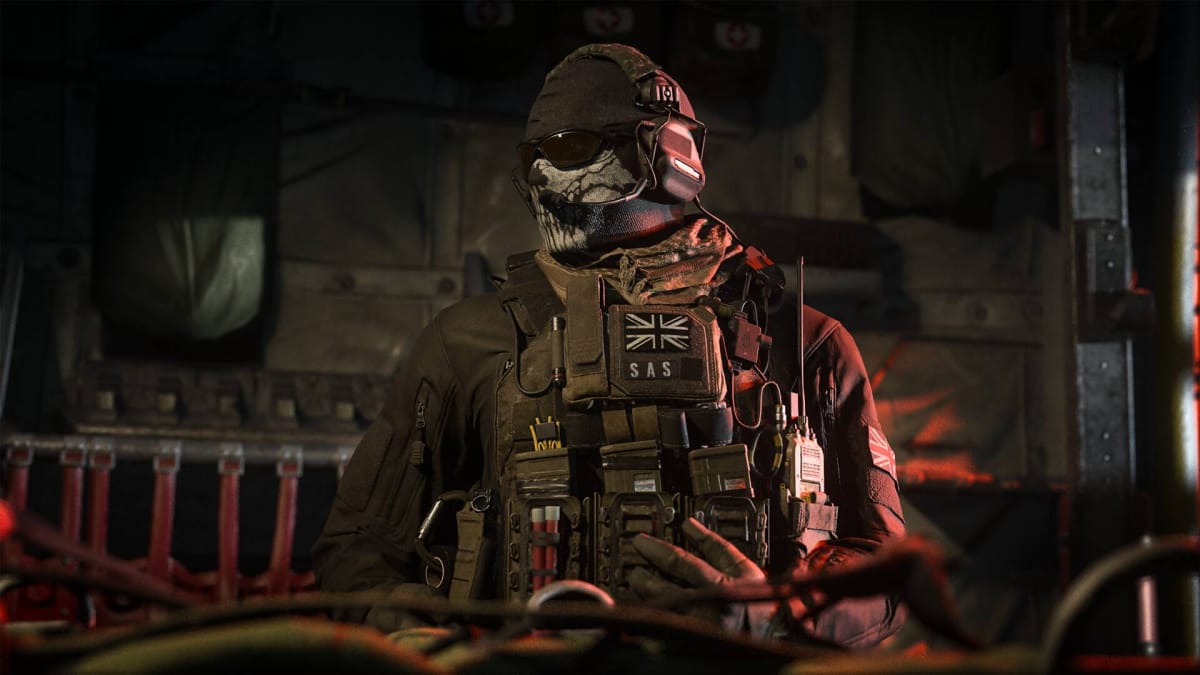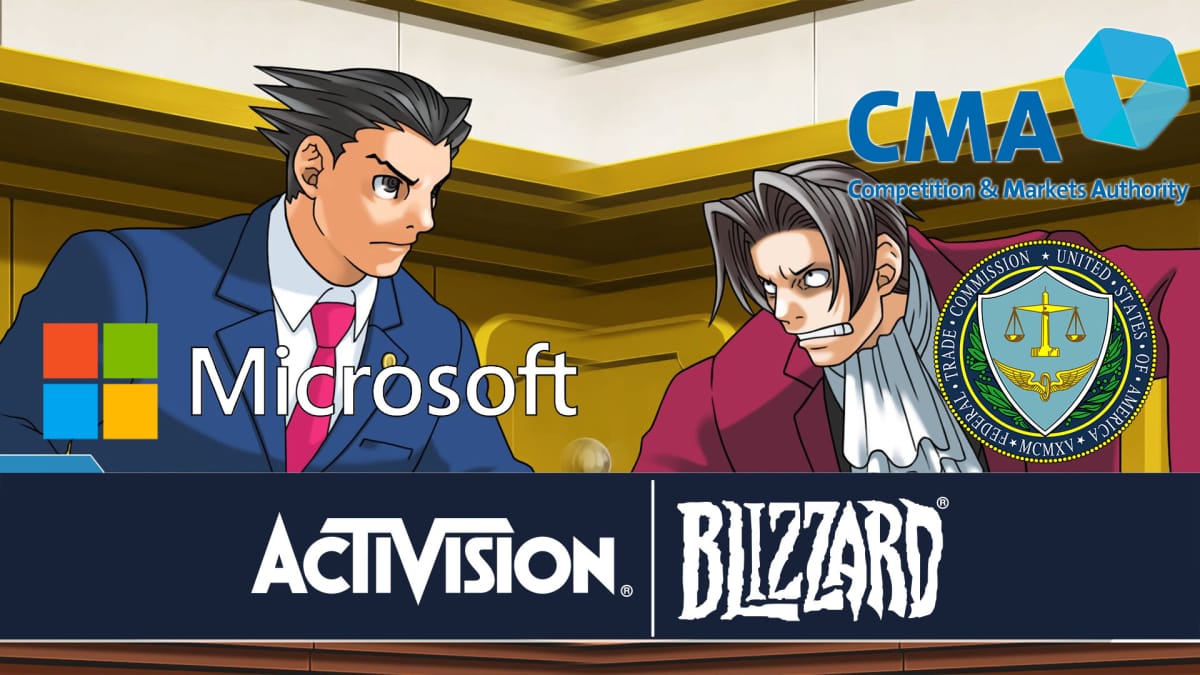The battle over the $68.7 billion acquisition of Activision Blizzard by Microsoft has shed light on the fact that major antitrust watchdogs are woefully unprepared to regulate the gaming industry.
Antitrust regulators are, nowadays, an essential part of maintaining some sort of level playing field in any industry, not to mention protecting customers from situations disproportionately in favor of manufacturers and publishers.
The gaming industry has also been acquiring, over the past few years, more and more importance in the business landscape, growing to comparable size and scope to the other entertainment industries, which in turn amplifies the need for effective regulatory oversight.
That's exactly where the problem lies, as during the long and torturous saga of the Activision Blizzard merger, we've seen attempts at regulatory oversight that have been far from effective in their execution.
Like most specialized industries, our industry is sophisticated, complex, and governed by its own mechanics. Generic business and economic competencies aren't enough to properly assess its ins and outs, as we've seen over and over in the time since the announcement of the acquisition in January 2022.
What we have observed is that some of the most relevant antitrust watchdogs in the world thought they could approach the case without doing the proper research and without hiring specialists with specific and practical experience in this field.
In the U.S., the FTC consulted a Professor of Economics from Harvard whose contribution to the analysis of the gaming industry can only be defined as entirely theoretical (and fairly marginal).
He ended up utterly failing to present a compelling argument about why the acquisition would harm gamers during the hearing in front of federal Judge Jaqueline Scott Corley, weakening the regulator's case considerably.
Judge Corley's denial of a preliminary injunction, then upheld by the 9th Circuit Court of Appeals, basically sank any real chance the FTC had to block the acquisition before it was closed earlier today.
Yet, that's only part of the problem. The FTC announced that it was seeking to block the acquisition in December 2022. Yet, over six months later, they looked like they suddenly had their back to the wall when Microsoft's acceleration forced them to start asking for emergency restricting orders and preliminary injunctions.
While the chronic slowness of the system is partly to blame, it's fairly obvious that the regulator did not take the matter as seriously as it should have at least in the early skirmishes, and ended up completely outplayed by a much more experienced and engaged opponent.

The British CMA fared only slightly better. They started by arguing that the acquisition would harm U.K. gamers and competition in the console field in February. Then, in March, they realized their theory was untenable and flip-flopped in the other direction blaming "a significant amount of new evidence."
In April, they decided to block the acquisition based on cloud-focused concerns that were far from closely related to the core of the deal and tenuous at best. Come June, it was pretty clear that Microsoft wasn't going to accept the decision without a fight, and the watchdog found itself entangled in an appeal fight that it had solid chances to lose.
Then, in July, the debacle suffered in the courts by the FTC was followed by a rather timely softer attitude by the CMA, which claimed productive discussions between the parties in its attempt to delay the appeal. After some more foot-dragging, the CMA blocked the original deal in August, but a restructured version ceding the cloud streaming rights outside of Europe to Ubisoft (by all means a minor concession) was conveniently ready on the table.
Fast forward to Oct. 13, the CMA approved the deal paving the way to its consummation, rather hilariously boasting a victory that is a monumental example of spin doctoring, with the acquisition free to go forward as intended minus a small part that was never the point to begin with.
While the British regulator ended up looking a bit less battered than the FTC as it took the way out it was offered when it could, its handling of the situation has been very far from spotless, with a similar lack of specific expertise that resulted in an only marginally more positive outcome.
It's impossible for us to evaluate how much taxpayers' money has been spent to achieve an insignificant divestiture to Ubisoft that changes nearly nothing in what the acquisition was always meant to achieve, but the number is likely much bigger than the results' worth.

Now, with the smoke on the battlefield partially clearing, all that's left is the FTC's own administrative law process. The American regulator has been fighting against big tech in several (often losing) cases and isn't ready to wave the white flag just yet.
That being said, having failed to block the acquisition, the watchdog has only one option left, trying to enforce a divestiture. Not only that would take a long time, but it'd have to satisfy extremely high legal requirements, making the chances of success very slim. That's more taxpayers' dollars down the drain for a very long Hail Mary.
The problem isn't that regulators are looking at the gaming industry with increasing scrutiny. That's actually rather positive, and we can see it as an indication of the growing importance of our hobby.
The big issue is that they're approaching that scrutiny like they would any other case in any tech or entertainment industry, without realizing that gaming is a very peculiar subset of tech and entertainment. It's governed by unique mechanisms and enjoys an engaged, vocal fanbase.
The saga of Microsoft and Activision Blizzard should serve as a harsh lesson for antitrust regulators around the world. Generic tech expertise isn't enough to regulate a sophisticated, unique industry. Resorting to actual experts with real experience in the field would be a much better use of budgets graciously provided by the taxpayers as opposed to professors and economists, or at least in addition to them.
Not only would that kind of expertise prove useful after the legal proceedings have started, but it'd likely help steer clear of losing cases to begin with. Arguably, as a vertical merger launched by a company that is very far from the top dog in the gaming industry, this was one of these.
Ultimately, the FTC, the CMA, and their counterparts in other nations simply need to learn to take the gaming industry seriously. The lesson may have been learned the hard way for some, but hopefully, it'll be useful for the future.
Have a tip, or want to point out something we missed? Leave a Comment or e-mail us at tips@techraptor.net













